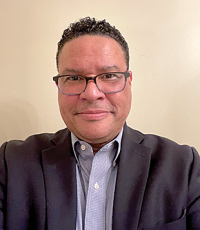April 10, 2024

The recent City Council vote on an ordinance to create a Planning Department within the city of Boston, with a proclaimed intent to sunset the powerful Boston Redevelopment Authority (BRA), recently known as the Boston Planning and Development Agency (BPDA), falls horribly short of delivering what Boston residents deserve. Allegedly part of the legislation promised by then-City Councillor Michelle Wu to rid the city of the agency responsible for flattening Boston’s Black, Brown, immigrant, poor and working-class neighborhoods, this ordinance is in fact a cynical rebranding of the BRA.
For all the harm the BRA has caused, Wu’s new agency is not weaker than it was; in fact, it is stronger. Given critical decision making that remains intact by keeping the BRA Board as our planning board, this agency can now exercise its powers beyond established urban renewal zones to the entire city.
While not part of the newly created Planning Department, the BRA/BPDA’s relationship with planning is compromised and conflicted because leadership of the intact BRA and the new Planning Department are the same person – Arthur Jemison, who is answerable only to Mayor Wu. Agency processes are less transparent, with no real City Council oversight and annual financial reviews done only after the fact.
Most telling, there is now no formal component for community engagement and input, making new development ripe for the very same abuse that laid waste to vast parts of Roxbury and the West End. With this new ordinance, moreover, the new agency is not sunsetting any time soon.
Most offensively, all of this “reform” was trumpeted under the patronizing, opportunistic but false branding of equity, affordability, and resilience.
If equity is so key to this ordinance – something Wu suggested in her 2019 white paper to sunset the BRA while pointing to the wealth gap – why are unchecked urban renewal powers that took what little equity Black, Brown, immigrant, poor, and working-class families had in their homes being kept?
This flaw in the new ordinance is either entirely missed or never adequately explained. In fact, it’s no different than the administration’s flawed plan to move the centrally located John D. O’Bryant school from Roxbury, where it meets students from very diverse backgrounds where they are and provides transformational STEM educational experiences, to West Roxbury. The lack of substantive community engagement, tone-deafness to real harm to the future equity of young people, and disrespect to a community is astonishing.
The disrespect and tunnel vision to pass this ordinance, and failure to be sensitive to obvious inequity playing out at White Stadium, helps make the case. Wu aims to give White Stadium to a private for-profit sports team in order to rehab and maintain a neglected city resource, displacing Boston Public School programming. Her plan raises the question: Would the city give Boston Common or the Public Garden over to private hands? No! But apparently, it’s okay to give White Stadium away because it’s in Boston’s neighborhoods of color and we can’t find the funding (the same funding, by the way, the Common and Public Garden receive).
The BPDA has carried out an extensive window dressing effort at community engagement and participation to create the illusion that there is a plan for Boston’s future that we have all bought into. Pop-in open houses, “Pint with a Planner,” surveys and endless talks with BPDA consultants every day of the week across Boston allow individuals an experience of sharing individual opinions, but without being heard.
As a community, through our neighborhood associations and organizations, we have not been engaged at the planning level. All the while, Mayor Wu’s clock is ticking, and still, there’s no commitment to substantively engage and learn from a constituency that bears the scars of past harms from flawed plans.
Two days after the official ordinance signing, April 4, marked 56 years since the Reverend Dr. Martin Luther King was assassinated while advocating for sanitation workers in Memphis, where he believed the struggle exposed the need for economic equality and social justice.
Giants in Boston like Mel King and Chuck Turner stopped a highway from being built through Roxbury. But in Boston recently, a voting bloc of four city councillors of color, Ruthzee Louijeune, Henry Santana, Brian Worrell, and Enrique Pepen, sided with the mayor and voted against their interests as Black and Brown folks of this city, and not protecting other Black and Brown folks from harm. History and future elections will be judge and jury.
Rodney Singleton is a lifelong resident of Roxbury, whose childhood home was taken by eminent domain during the urban renewal of the 1960s. He is an avid gardener, lover of open spaces, and six-time winner of Boston’s garden competition. A graduate of Boston Technical High (John D. O’Bryant) and Northeastern University, he is an electrical engineer who lives with his wife on Cedar Street.



